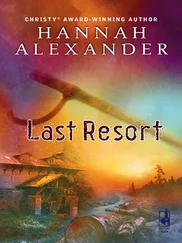The Last Resort
A Novel
Alison Lurie

For Doris
Manatees are slow-moving creatures that feed on aquatic vegetation in shallow coastal waters, estuaries, and slow-flowing rivers. They live singly or in small family groups.... Members of a group frequently communicate by muzzle-to-muzzle contact and, when alarmed, by chirplike squeaking.... All three species are declining in population.
— The New Encyclopedia Britannica,
15th edition
But there’s a tree, of many one,
A single field which I have looked upon, Both of them speak of something that is gone.
—Wordsworth, “Ode: Intimations of Immortality”
1
AT THREE A.M. on a windy late-November night, Jenny Walker woke in her historic house in an historic New England town, and sensed from the slope of the mattress and the chill of the flowered percale sheets that Wilkie Walker, the world-famous writer and naturalist, was not in bed beside her.
Often now Jenny woke to this absence. The first time, after lying half awake for twenty minutes, she tiptoed downstairs and found her husband sitting in the kitchen with a mug of tea. Wilkie smiled briefly and replied to her questions that of course he was all right, that everything was all right. “Go back to bed, darling,” he told her, and Jenny followed his instructions, just as she had done for a quarter century.
After that night she didn’t go to look for him, but now and then she would mention his absence the next morning. Wilkie would say that he’d had a little indigestion and needed a glass of soda water, or wanted to write down an idea. There was no reason to be concerned about him, his tone implied. Indeed her concern was unwelcome, possibly even irritating.
But since the day they met, Jenny had been more concerned about Wilkie Walker than anyone or anything in the world. He had come into the University Housing Office at UCLA where she was working after graduation while she waited to see what would happen next in her life. It was a misty, hot summer morning when Wilkie appeared: the most interesting-looking older man Jenny had ever seen, with his broad height, his full explorer’s mustache; his shock of blond-brown hair, steel-blue eyes, and sudden dazzling smile. Dazzled, she heard him ask about sabbatical sublets for the fall. He wanted somewhere quiet with a garden—he liked to work out of doors if he could, he explained—but he also hoped to be within a half-hour’s walk of the university. Which no doubt wasn’t possible, he added with another radiant smile.
But Jenny was able to assure him that she knew just the place. And two days later, while she was still dreaming of Wilkie’s visit and wondering if she could get leave to audit his lectures, he reappeared to thank her and ask her to have lunch with him.
It was only later that Jenny realized how unusual that had been, because at the time Wilkie Walker was extremely wary of all women. He had been married twice, both times briefly and disastrously (“I get on well with most mammals, but I seem to have difficulty with our species”). First to a sweet and graceful but totally impractical girl whom he compared to a highbred Persian cat (“all cashmere fur and huge sky-blue eyes and special diet, but she always had a slight cold, couldn’t hike more than a mile without collapsing, and was terrified of most other animals”).
Then, on the rebound, he had married a young woman who was equally good looking and much more competent and robust (“strong and healthy as an Alaskan husky”), but who turned out to be deeply hostile to men and especially to Wilkie. For example, when at a time of crisis he asked her to retype one of his articles, the husky not only growled at him but dropped his manuscript into the kitchen wastebasket, among eggshells and wet grapefruit rinds and crusts of rye toast.
At that first lunch Jenny knew that Wilkie Walker was someone she could, even should, devote her life to. And as she came to know him better she was almost shocked to discover how badly he needed this devotion; how much of his own life was wasted on inessentials. How often he had to set his work aside for tasks someone else (Jenny, for instance) could do for him much faster and more easily, for Wilkie had no natural aptitude for shopping or household repairs or balancing a checkbook.
And after they were married she did all these things and much more: happily, gratefully. Soon she became able to help Wilkie in many other ways: not only typing and proofreading his books and articles, but accompanying him on field trips, making notes, and taking photographs. At home she helped with library research, copying and faxing, finding illustrations (often her own photos), and creating tables and graphs. As Wilkie became ever busier and more famous, she kept his schedule of lectures and interviews and meetings, arranged airline tickets and hotel reservations, took phone and E-mail messages, and corresponded in his name with agents and editors and fans.
Usually now, when Jenny woke at night and found herself alone, she sighed, turned over, and slid back into oblivion. But tonight sleep didn’t come. She lay in the antique four-poster bed listening to the windy scrape of bare twigs against glass, thinking that everything was not all right and neither was Wilkie. For months—since he retired last spring, really—his nights had been wakeful, and more and more often he seemed restless or weary during the day. Moreover, none of the things that he used to enjoy so fully seemed to please him now. For the first time since she’d known him, Wilkie had to be urged to attend concerts, lectures, or films. He didn’t read most of the books and articles on nature and the environment that crowded into the mailbox, often accompanied by letters of gratitude and appreciation. More and more often he declined to serve on committees and boards, and he delayed returning telephone calls, even after Jenny had gently reminded him several times.
More worrying still, Wilkie hadn’t finished his important new book, The Copper Beech. This, perhaps the culminating work of his life, was the portrait in depth of a great tree on the Convers College campus; it would bring together all his interests: botany, climatology, ecology, entomology, geology, history, soil science, and zoology. Wilkie’s agent and editor were excited about The Copper Beech, and it had already been announced in his publisher’s catalogue. Every day Jenny expected her husband to give her the final chapter to type into the computer, and every day she was disappointed.
Besides this, and almost worst of all, Wilkie seemed to be losing interest in his friends and family. For over a month he hadn’t been to the faculty club, and he wouldn’t let her ask anyone to dinner. Last week when the children were home for Thanksgiving he had had little to say to them. He had less and less to say to Jenny too; also, for nearly a month he had not suggested making love.
Clearly something was wrong. And that being so, it was Jenny’s responsibility to correct it. Perhaps, she had thought at first, her husband was ill but didn’t realize this, because he had hardly been sick a day in his life. He had always refused, for instance, to acknowledge colds: when one showed signs of wanting to attach itself to him he ignored it until, defeated, it slunk away.
A month ago Jenny had persuaded Wilkie to have a medical checkup—first on general principles, then resorting at last to her usual last resort: the claim that it would make her feel better. Grumbling about the waste of time, reiterating his belief that people who weren’t ill should stay away from doctors, Wilkie accompanied her to Dr. Felch’s office and was pronounced to be in excellent health for a man of his age. Prompted by Jenny, he admitted that he occasionally got up at night, but declared that he saw nothing wrong with this; he refused to accept the term “insomnia.”
Читать дальше













